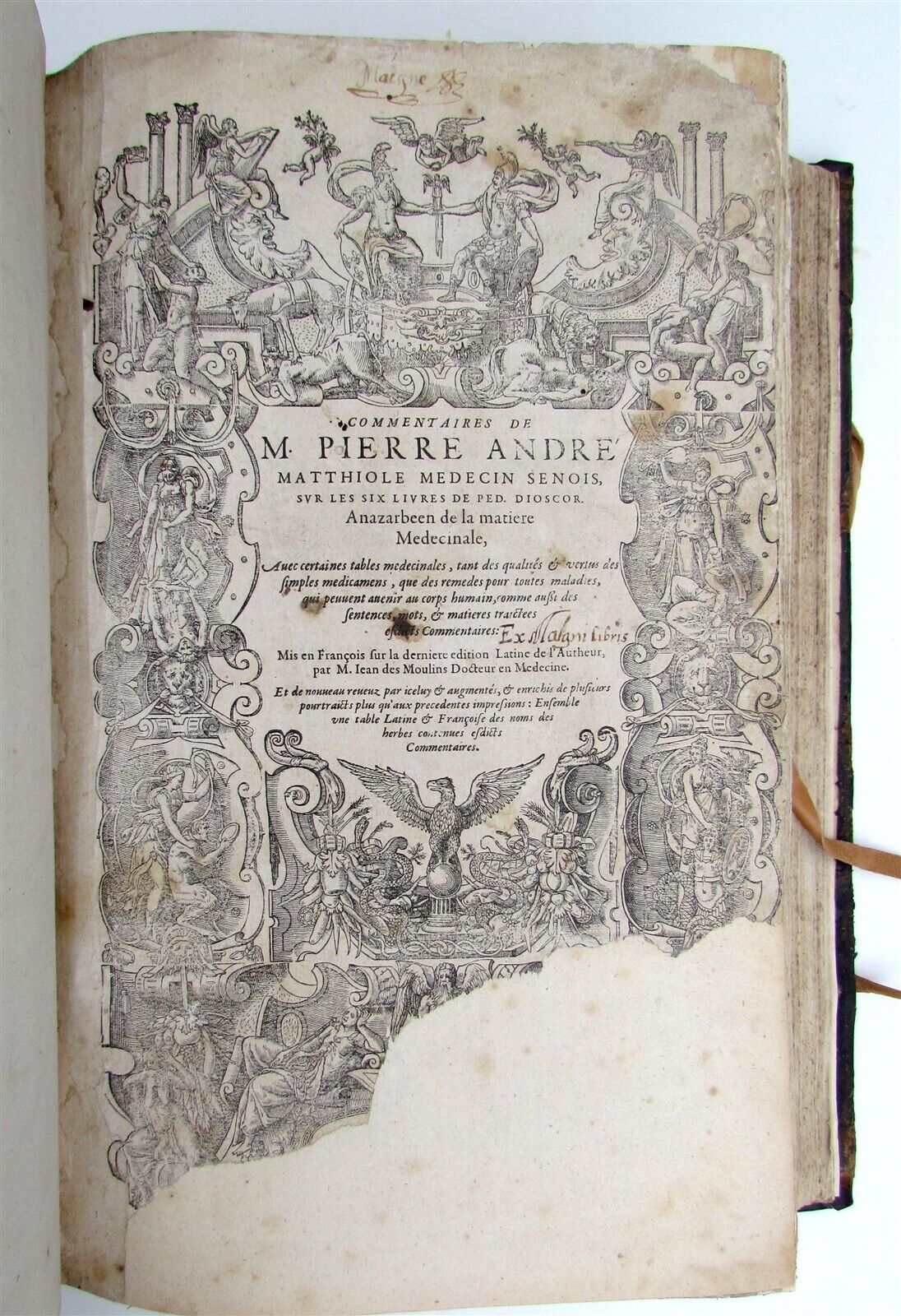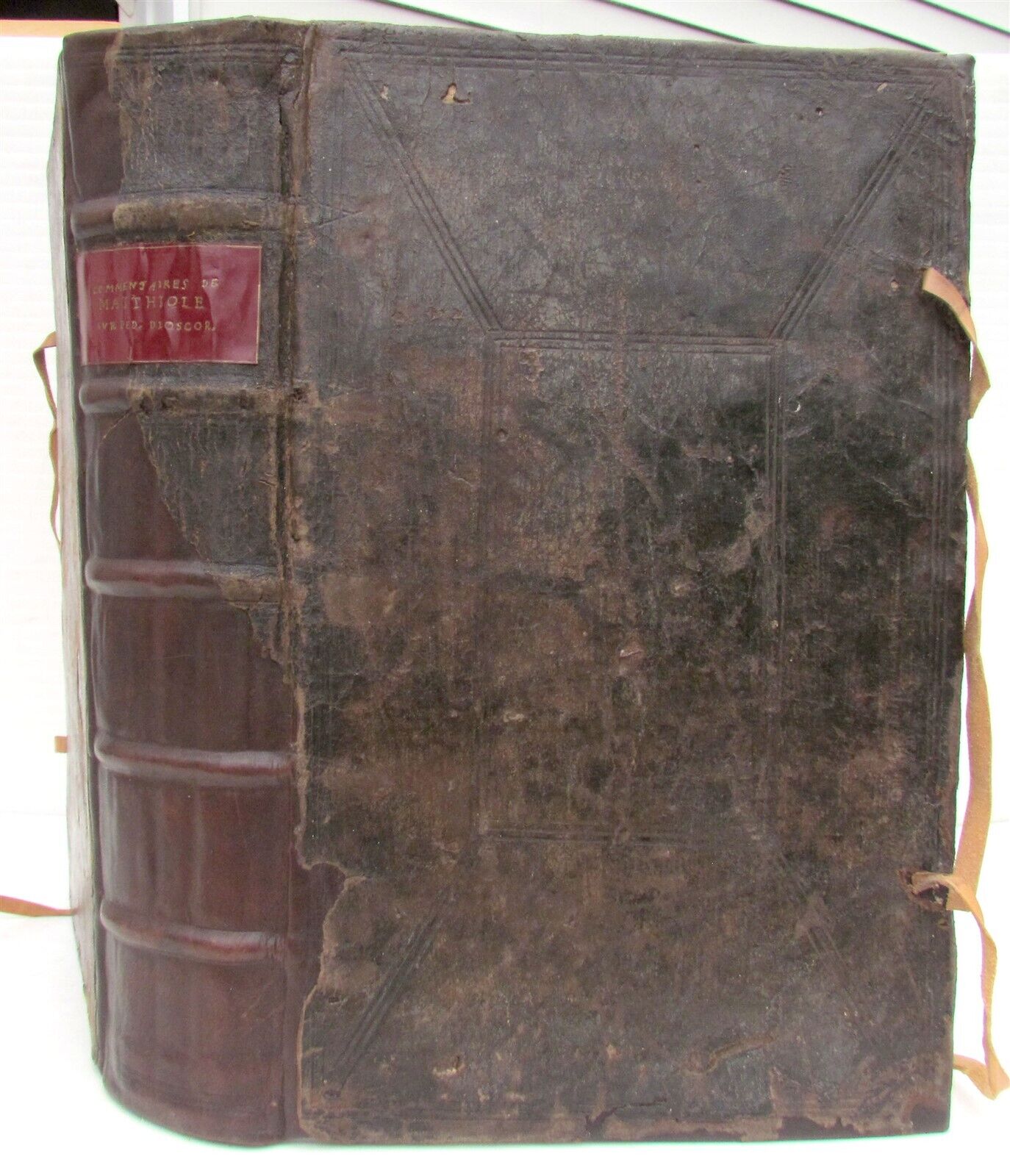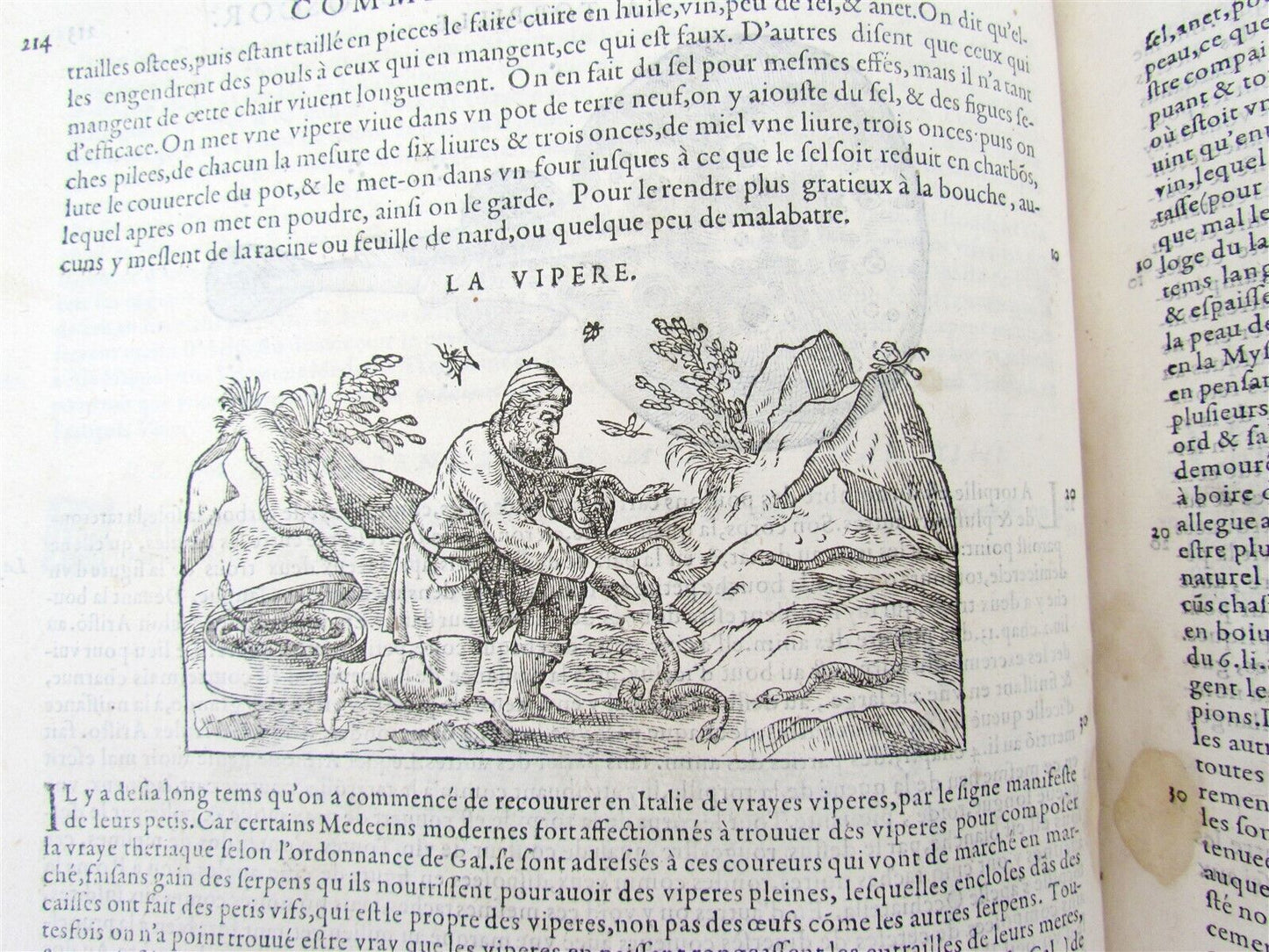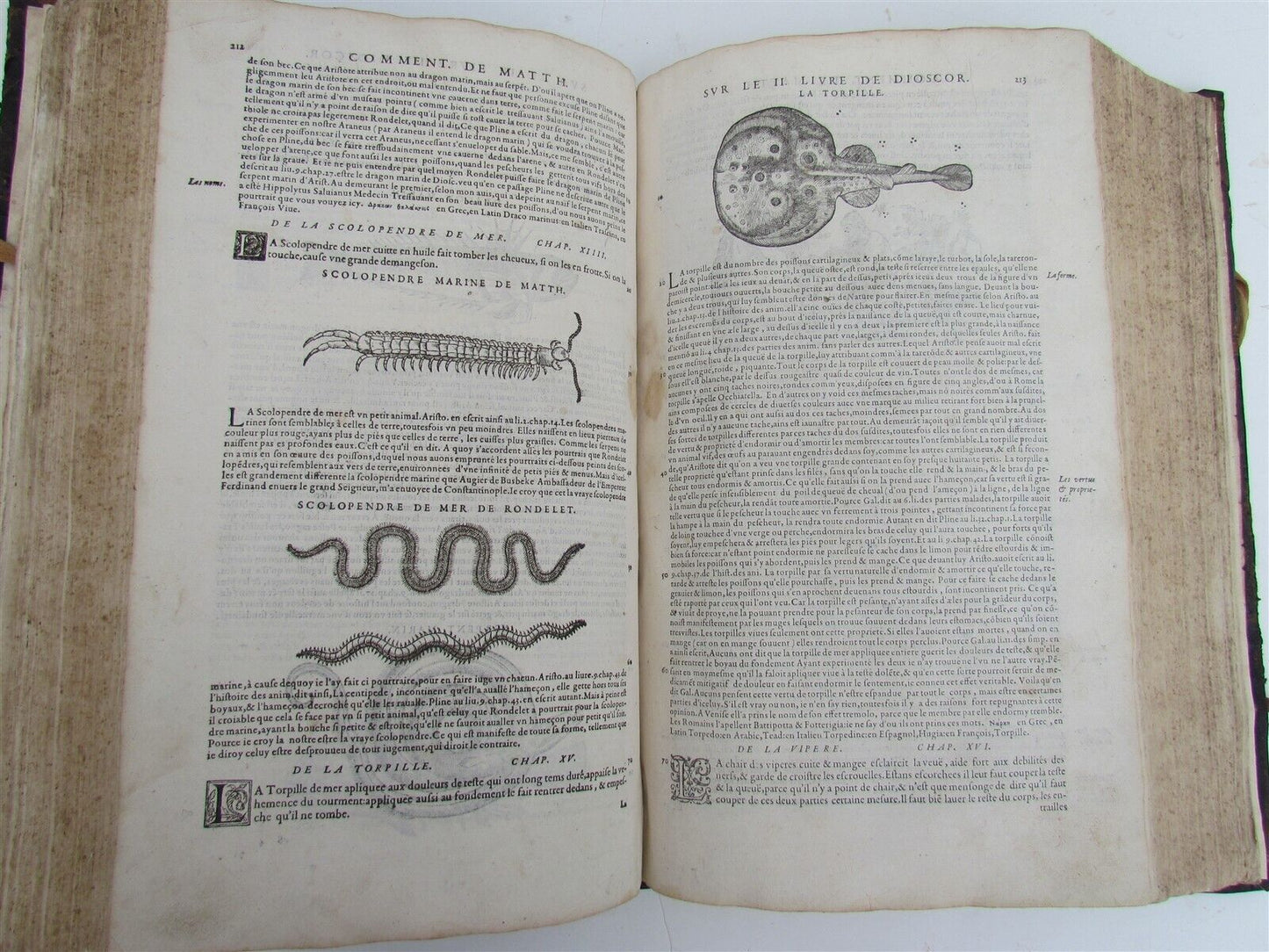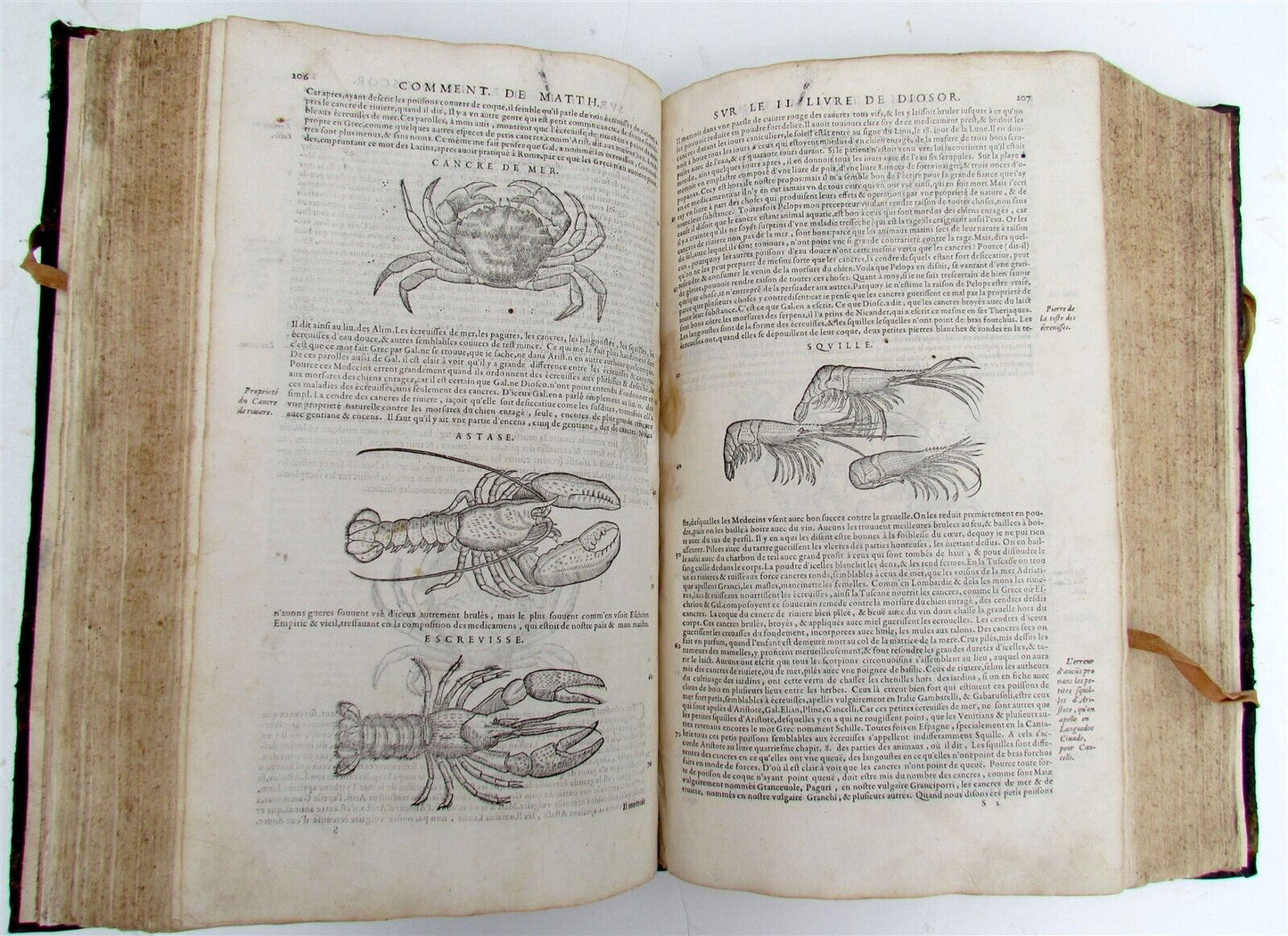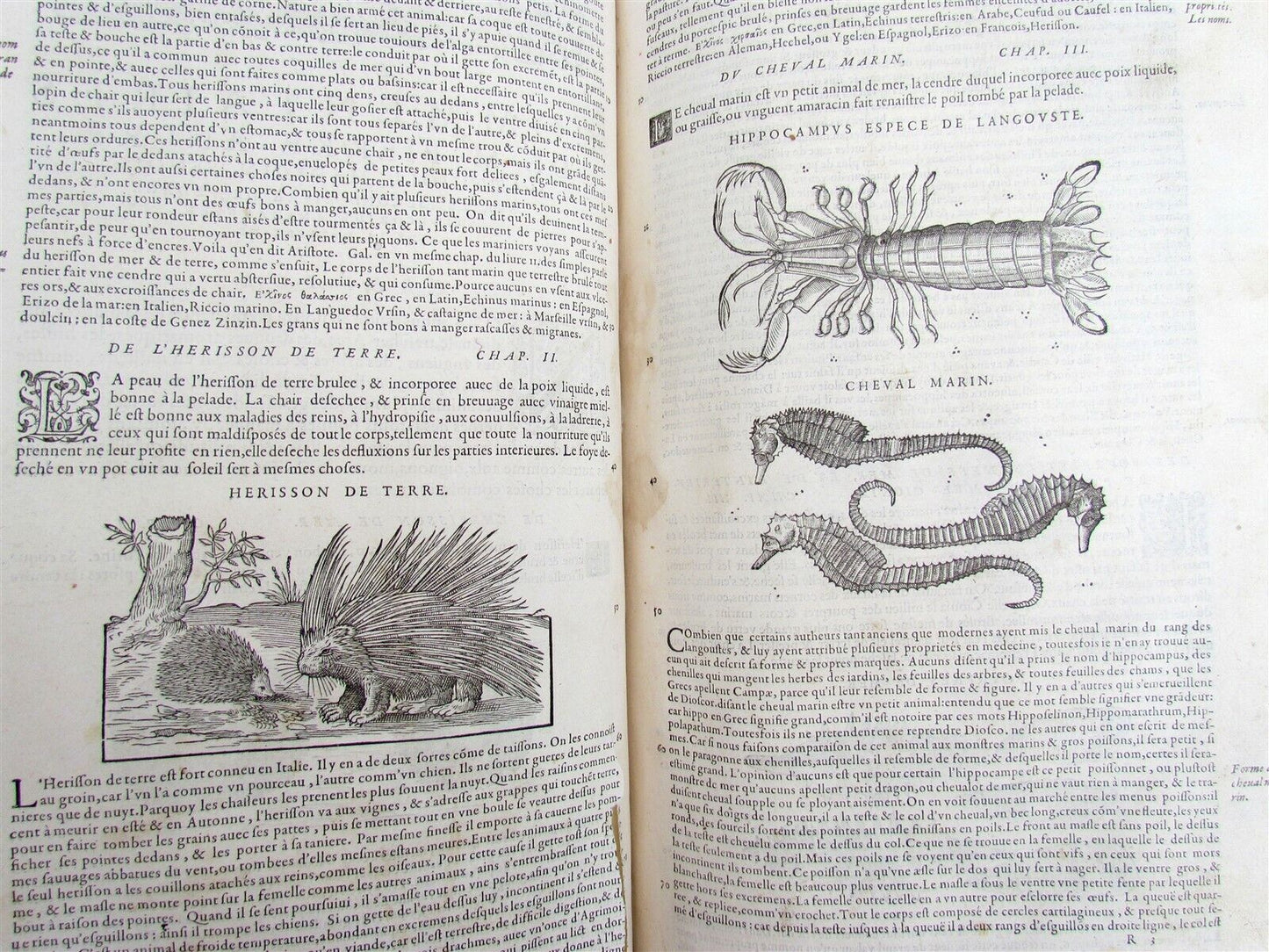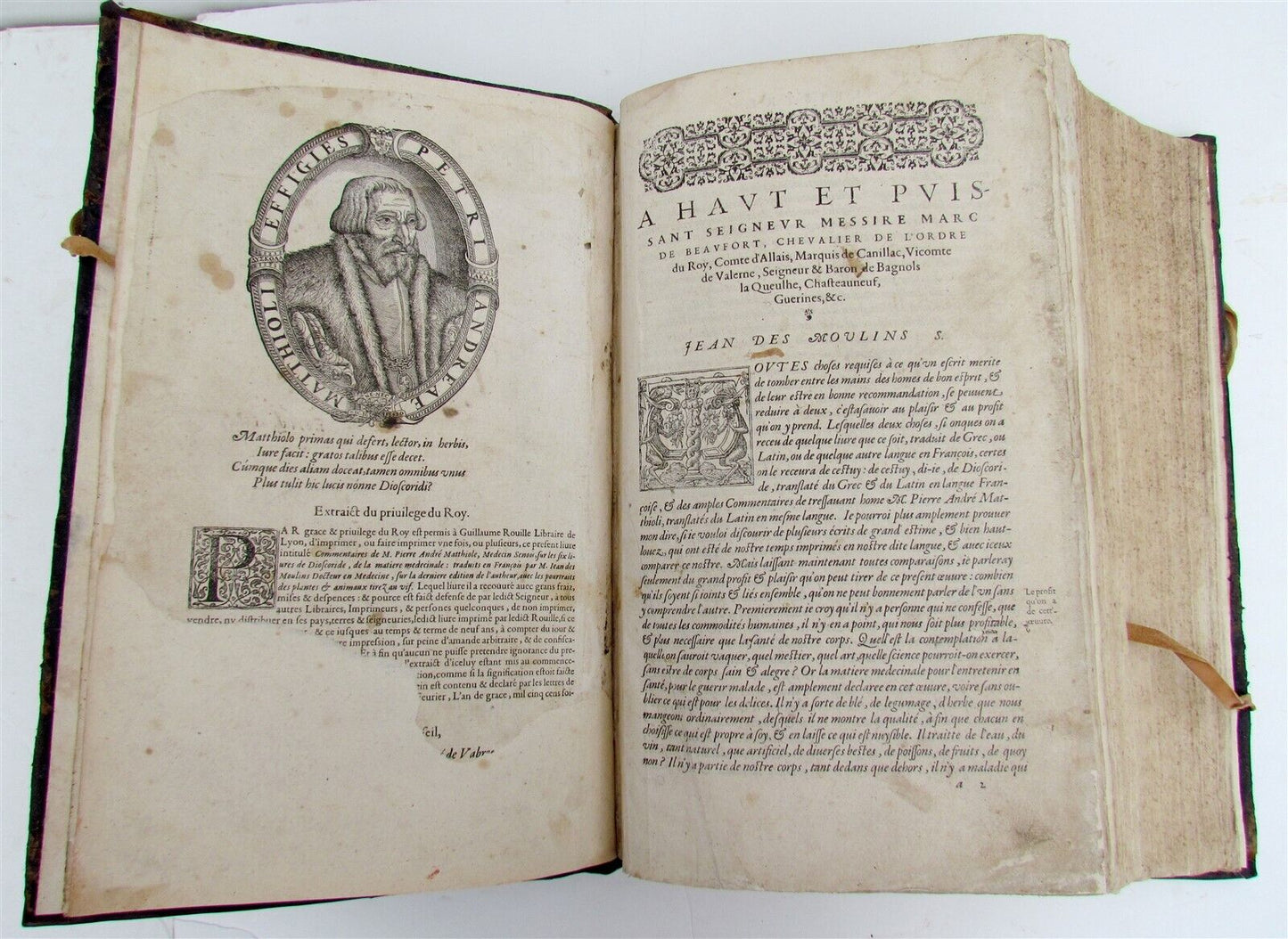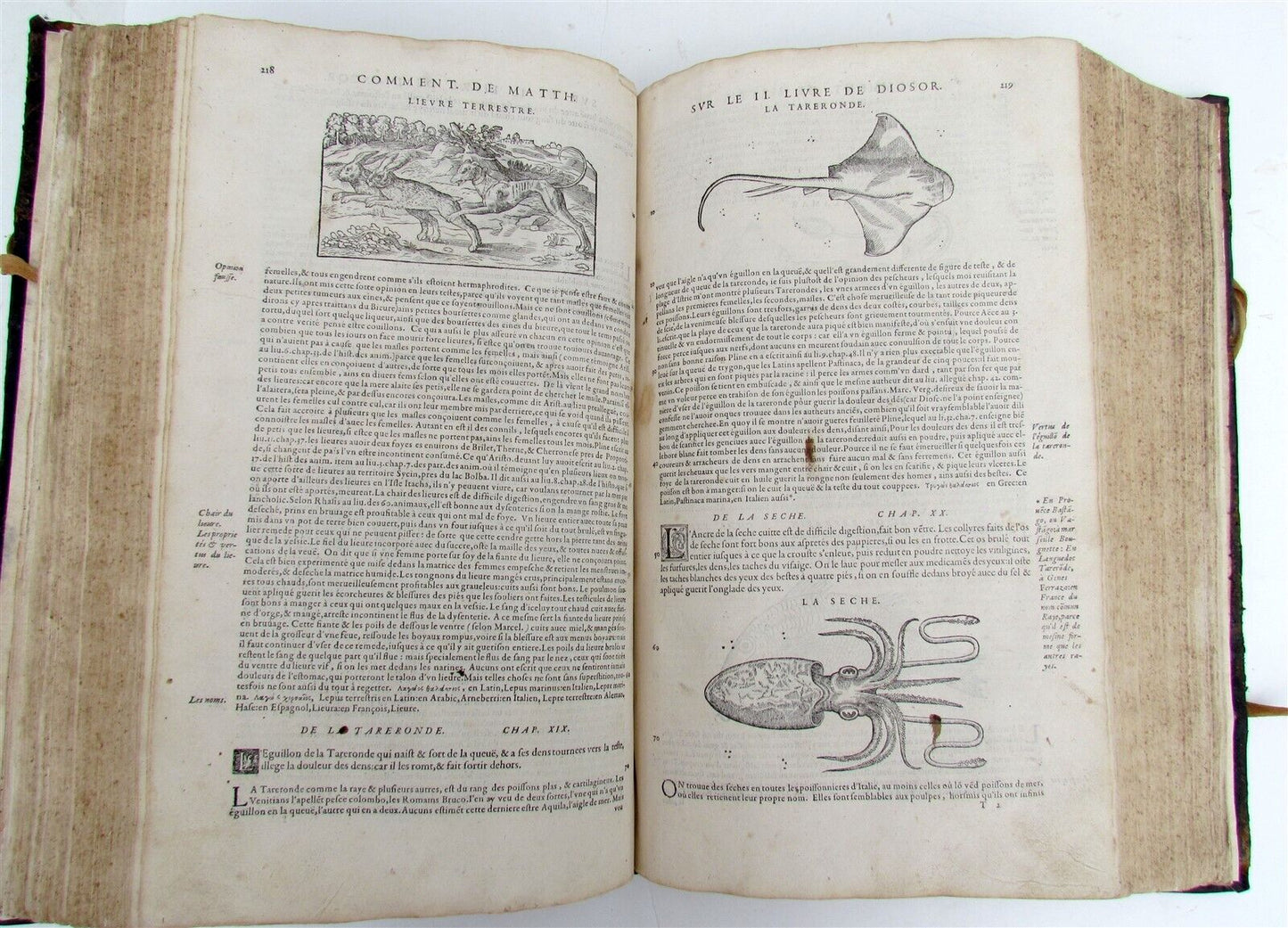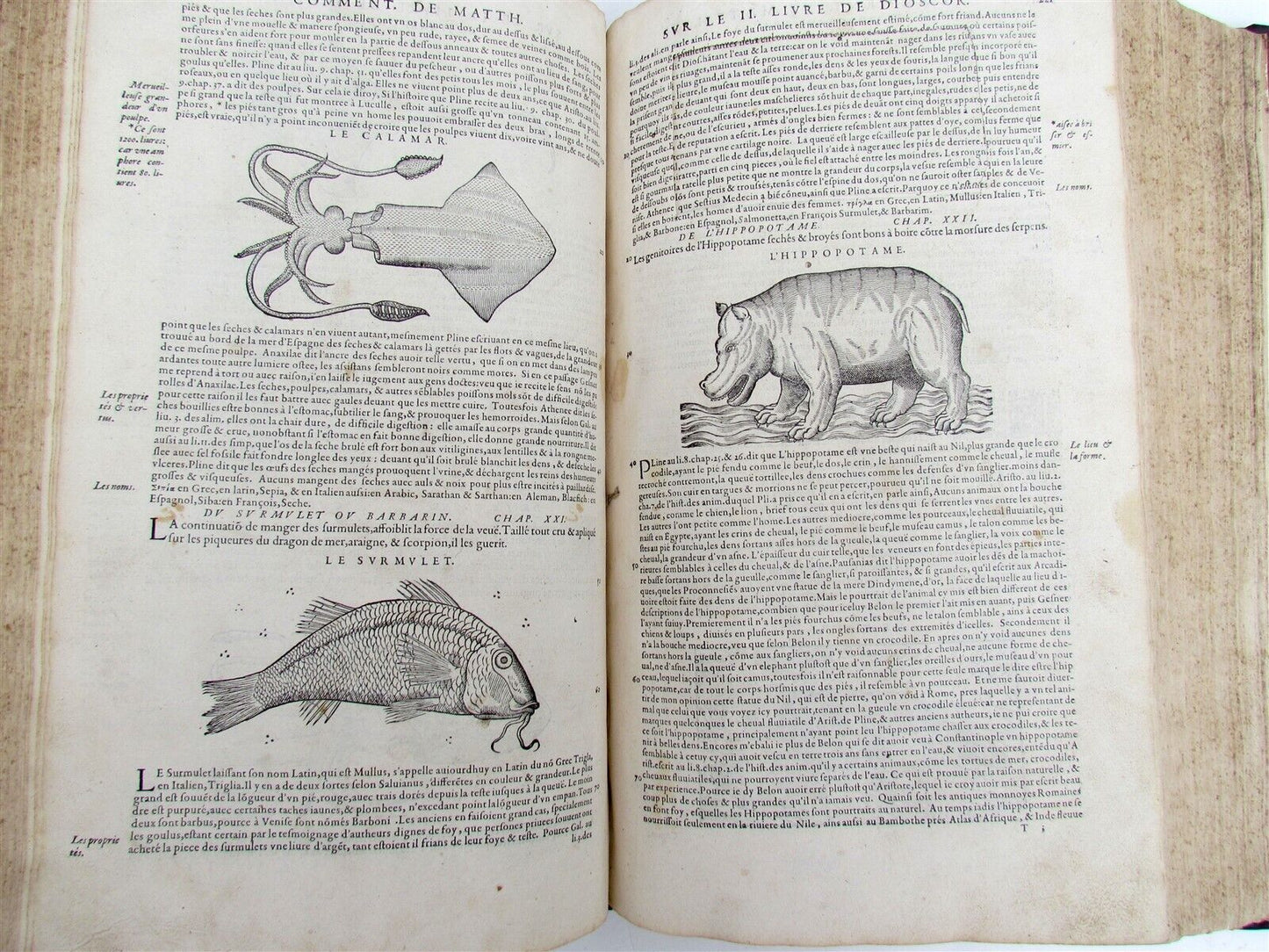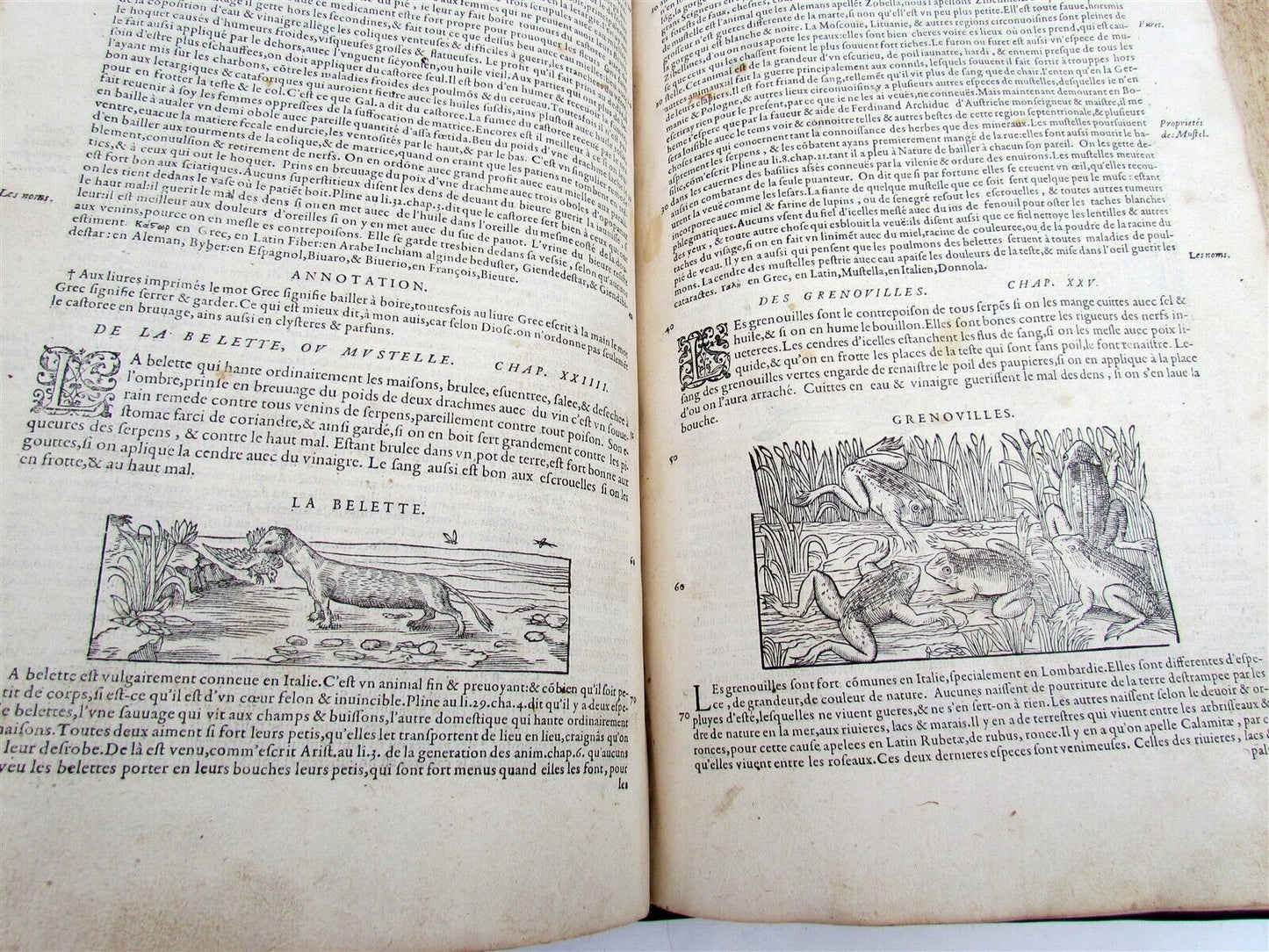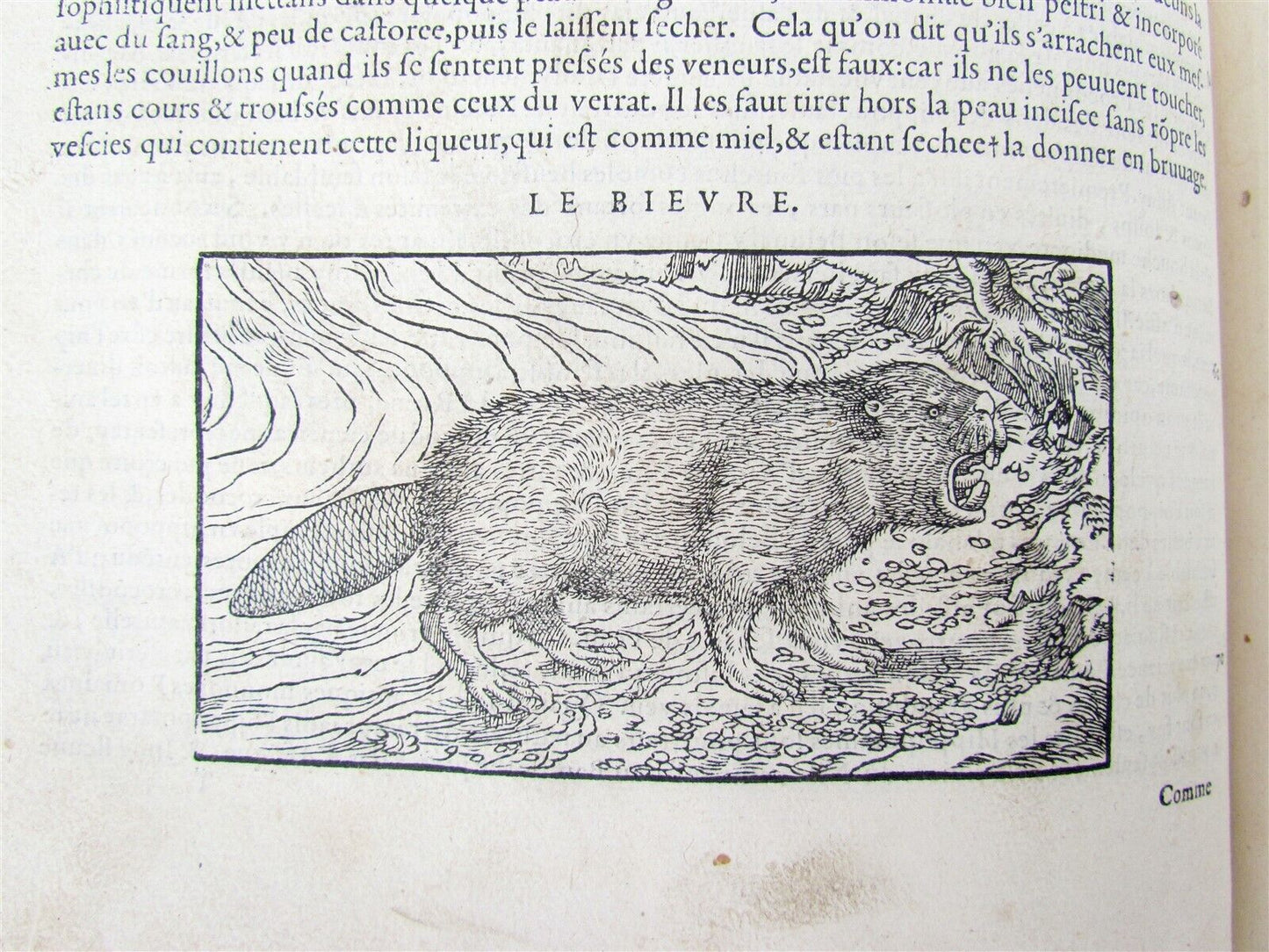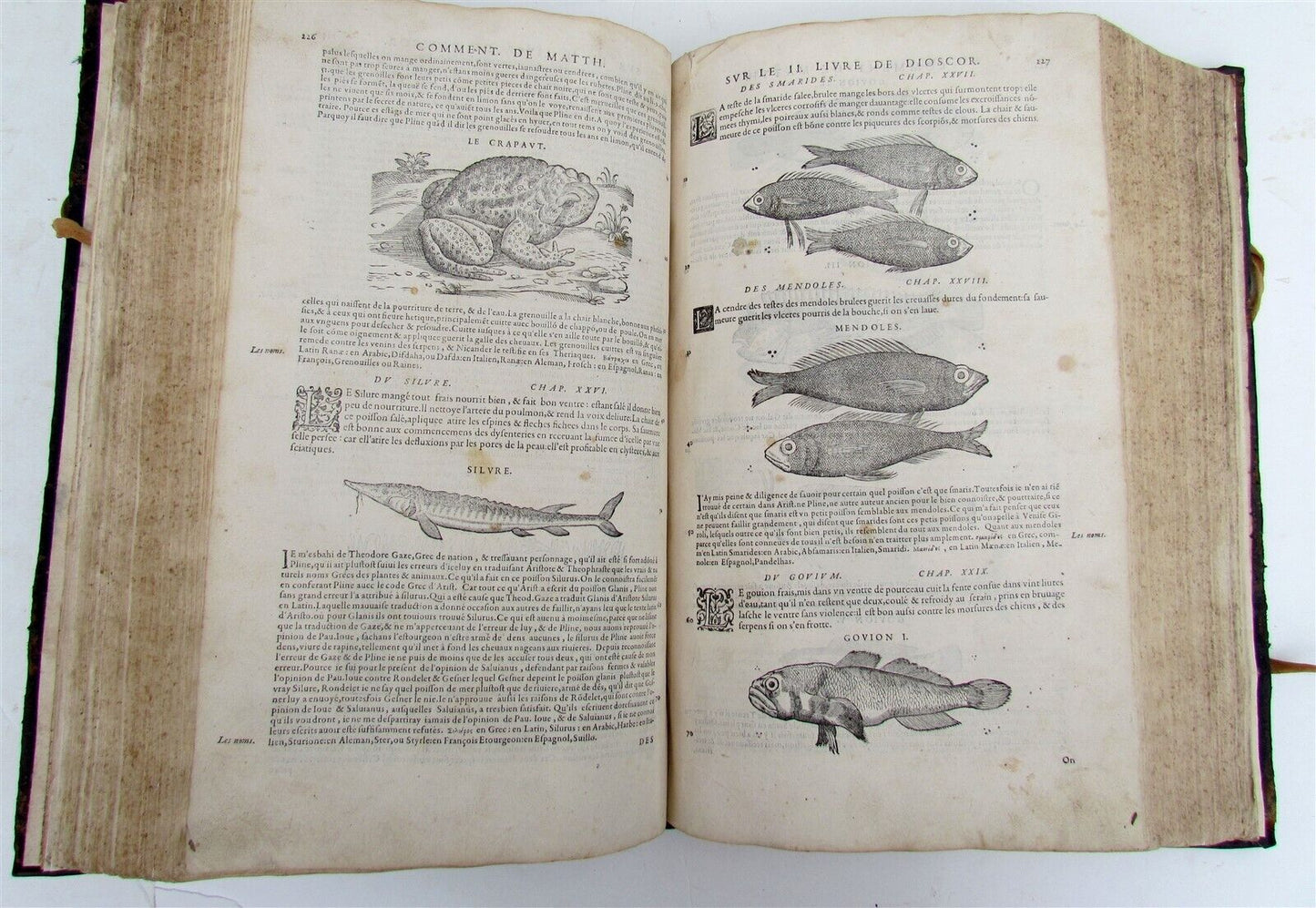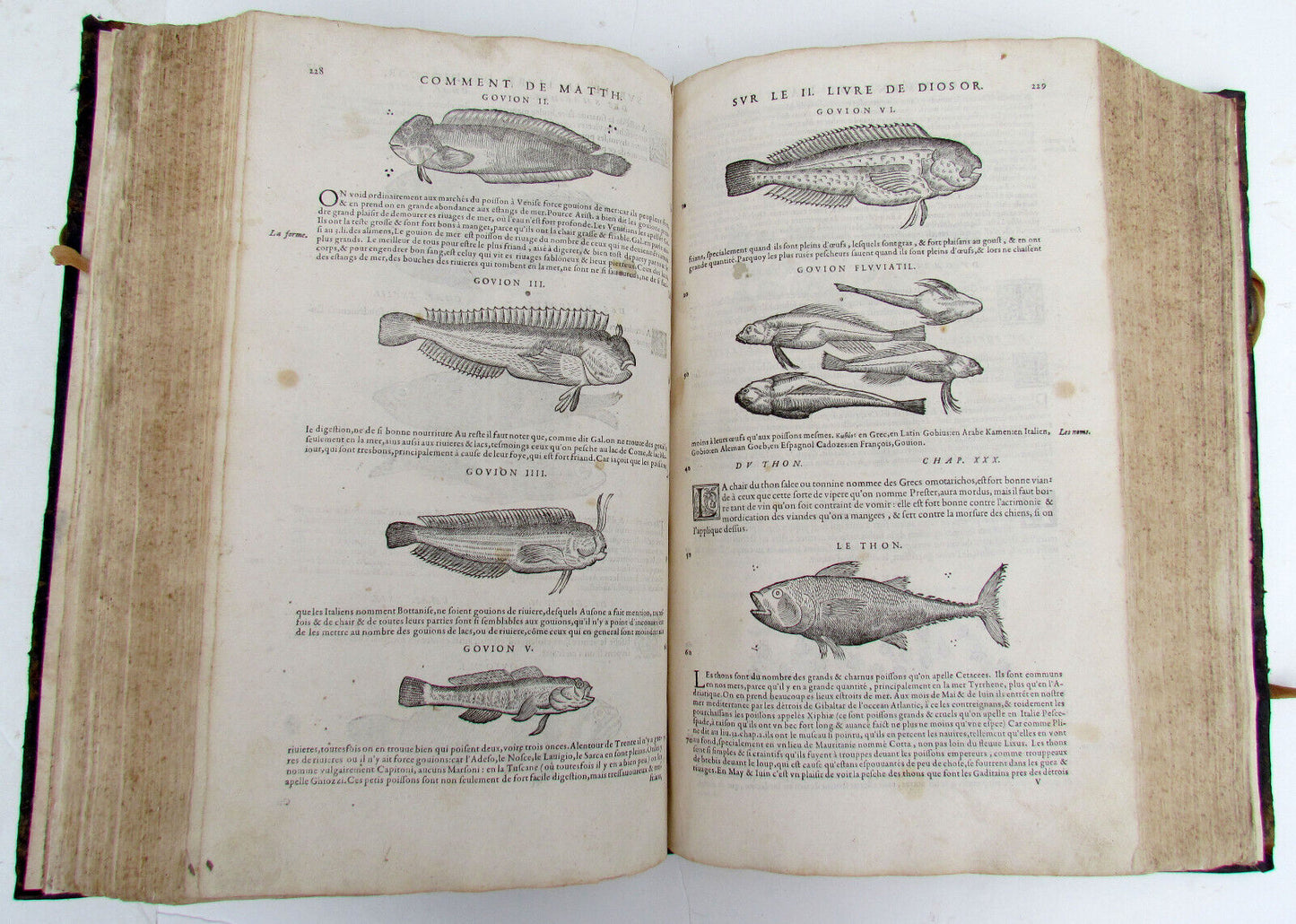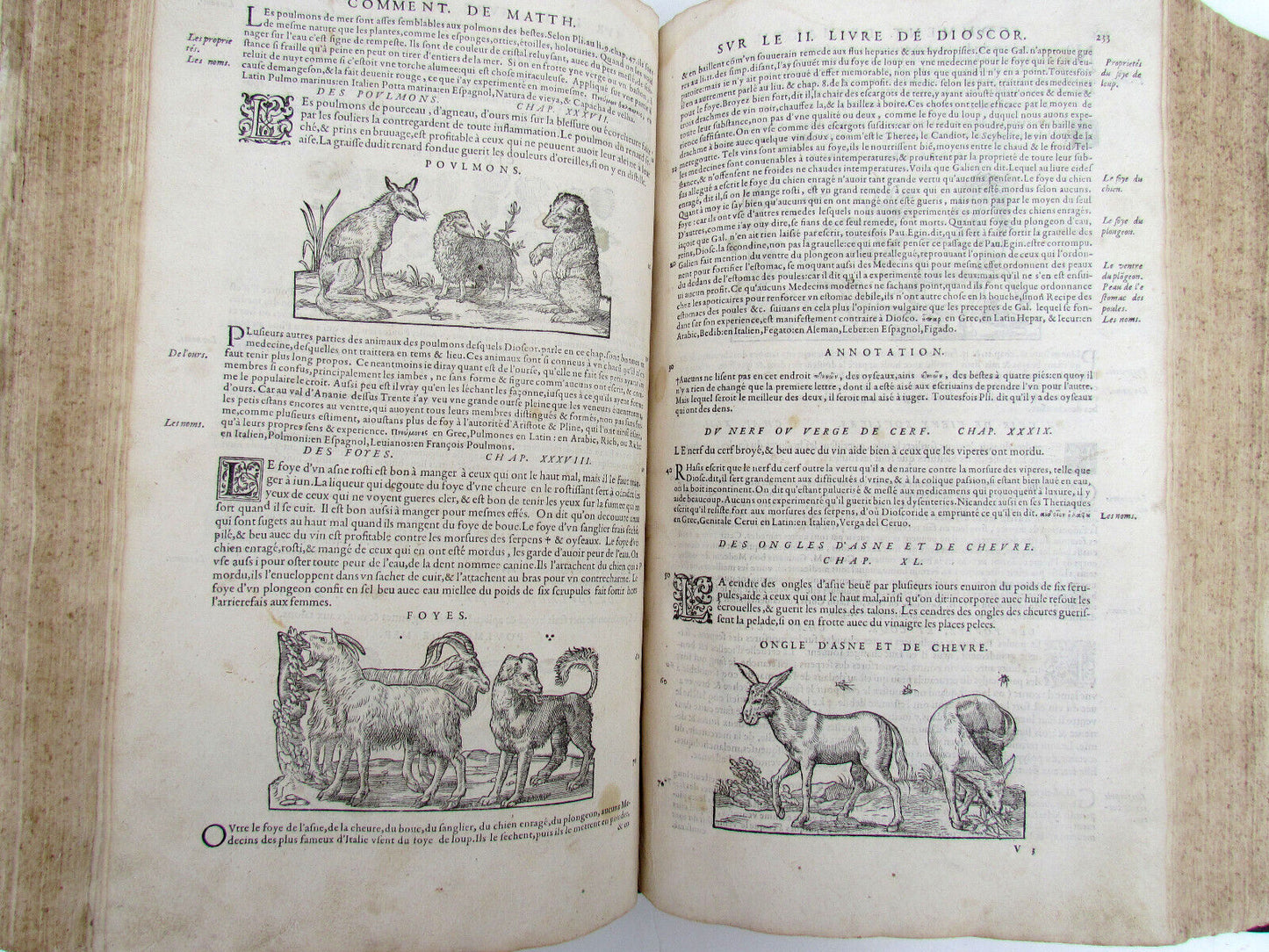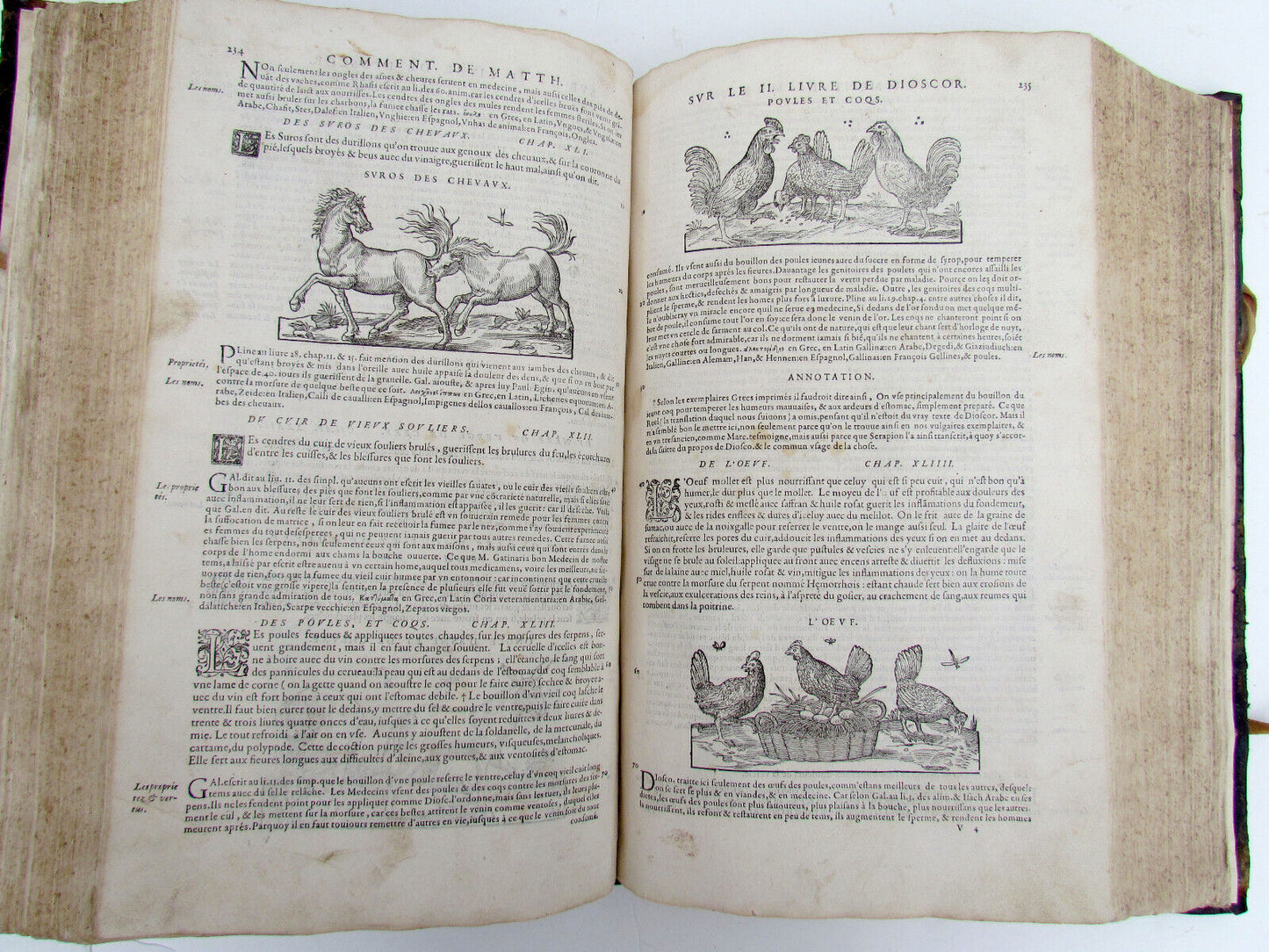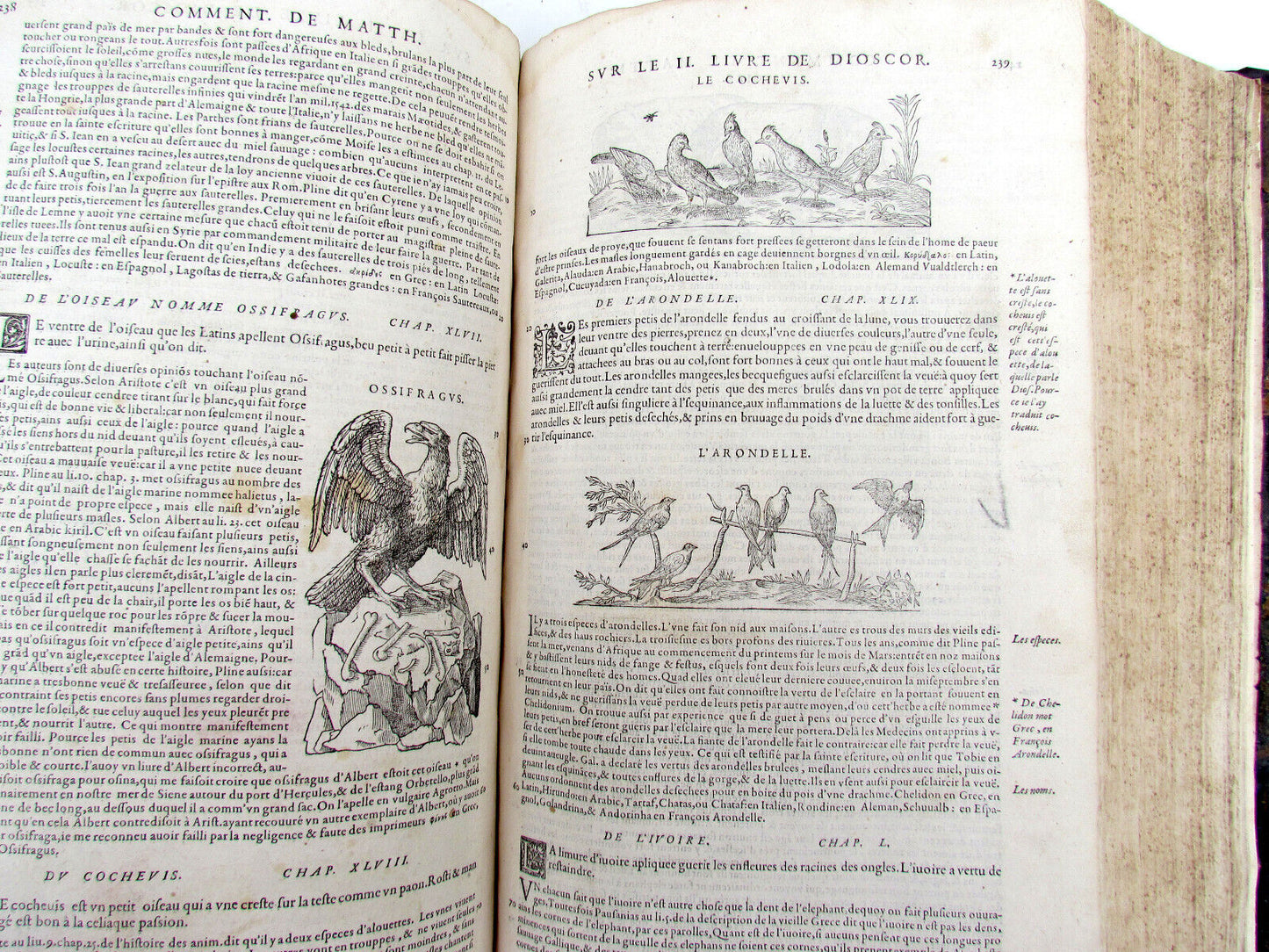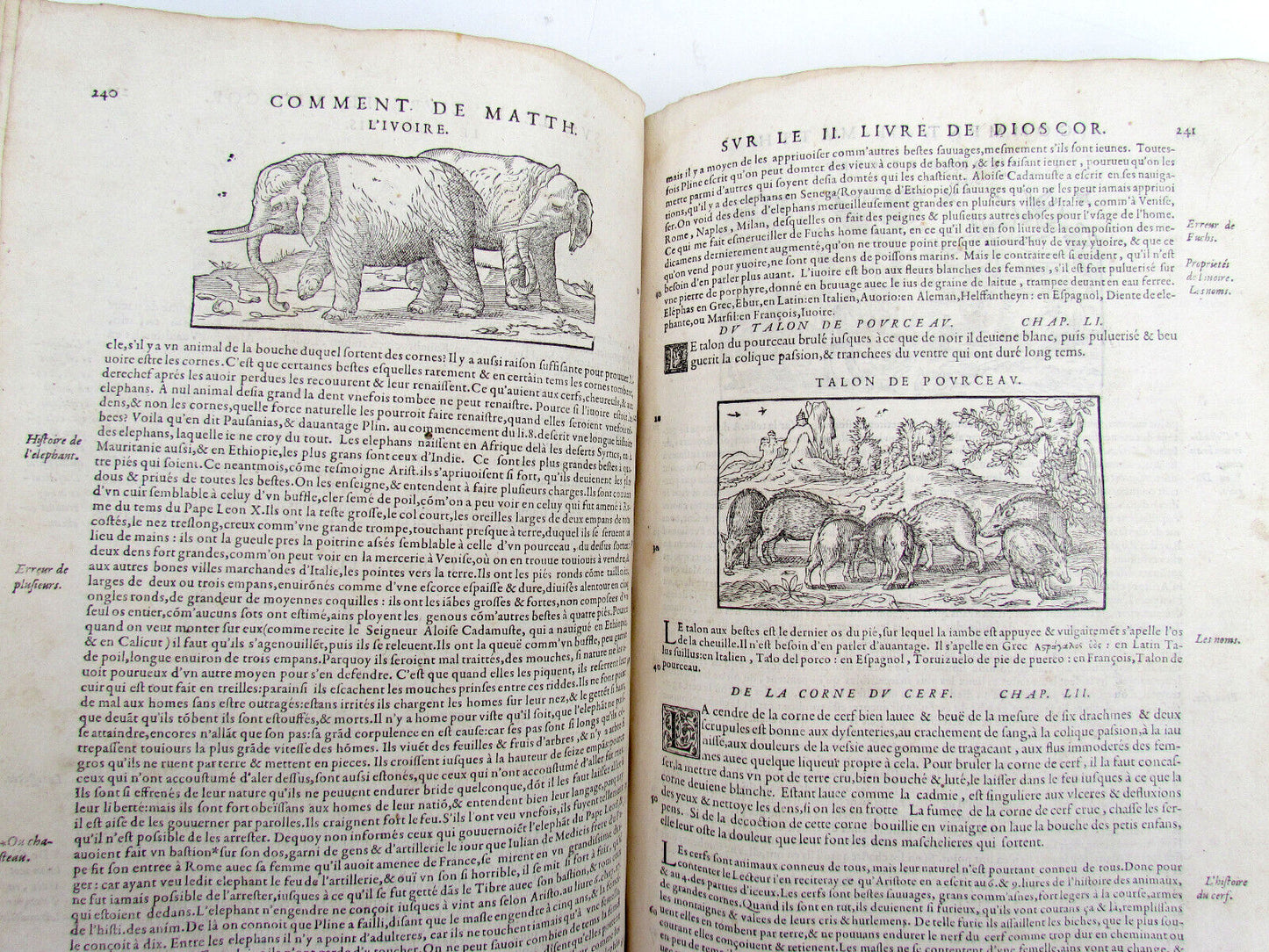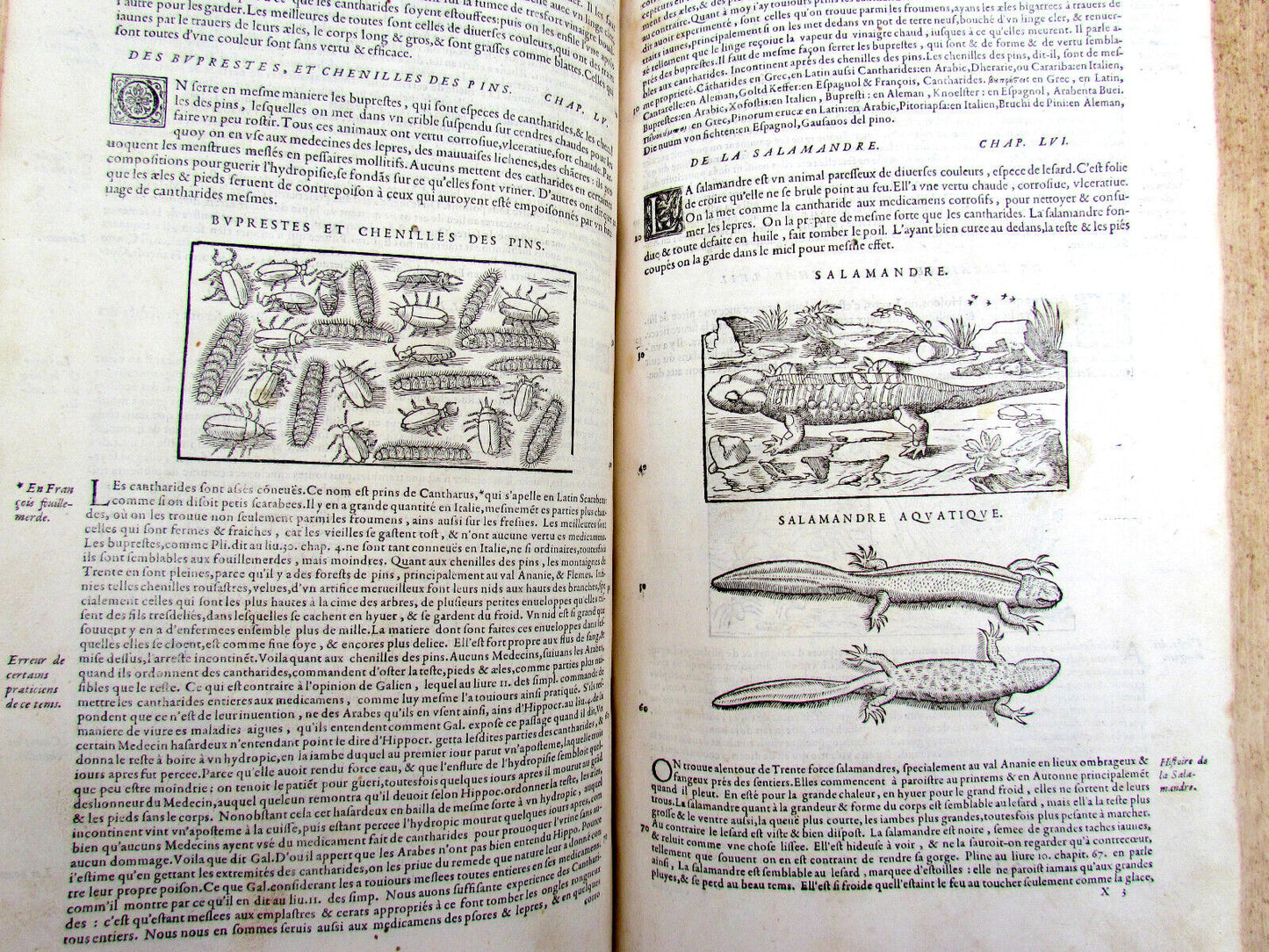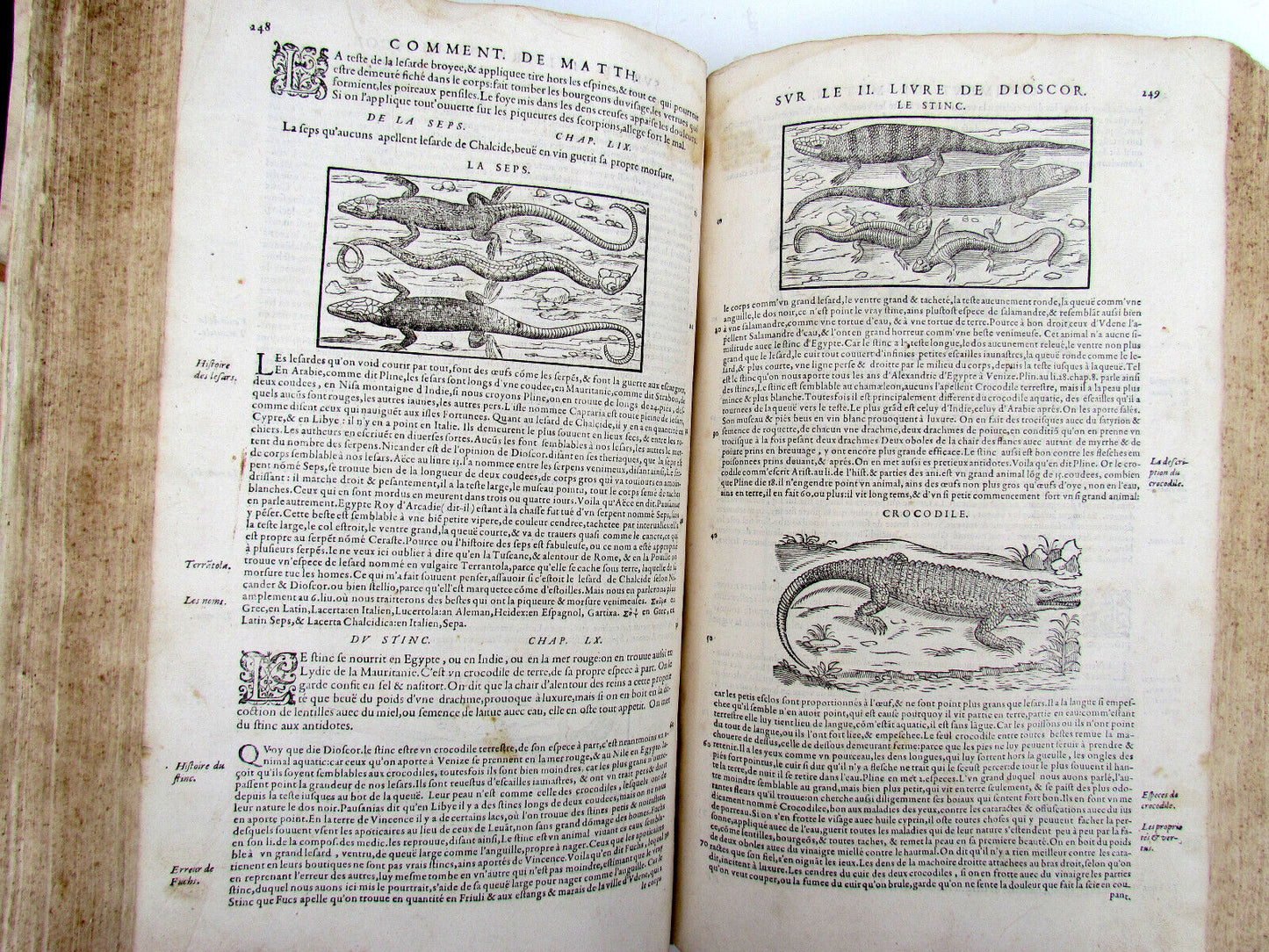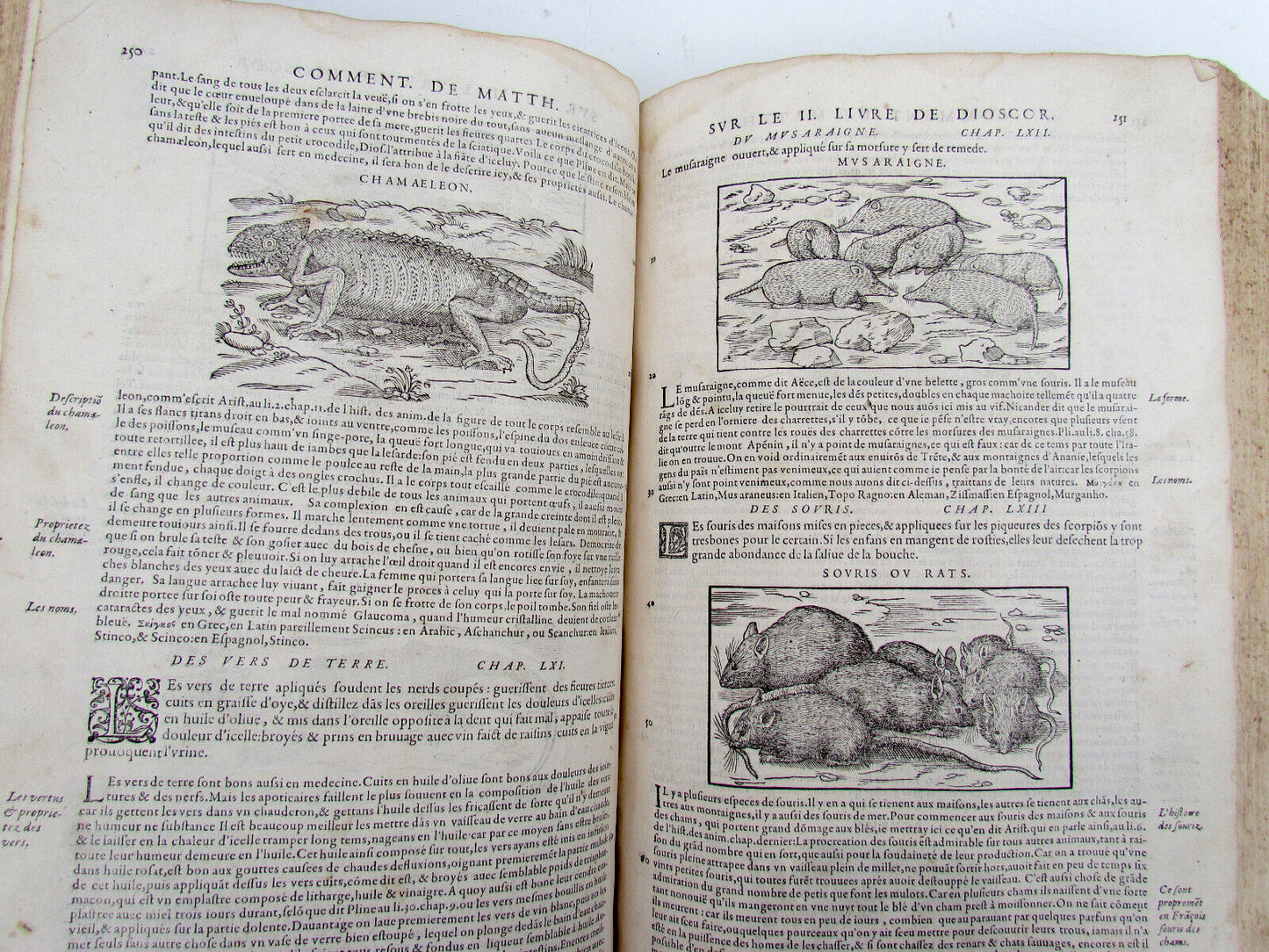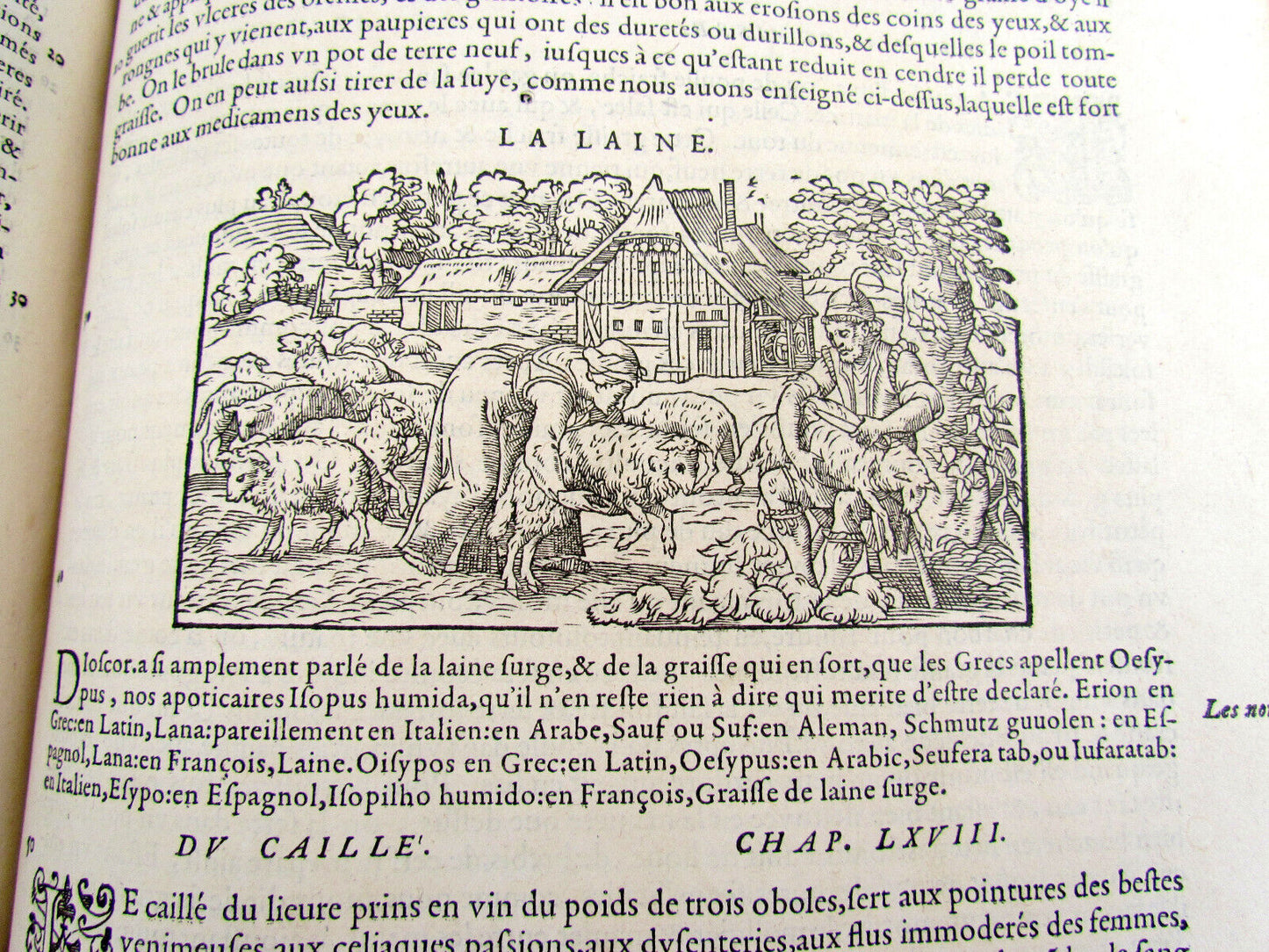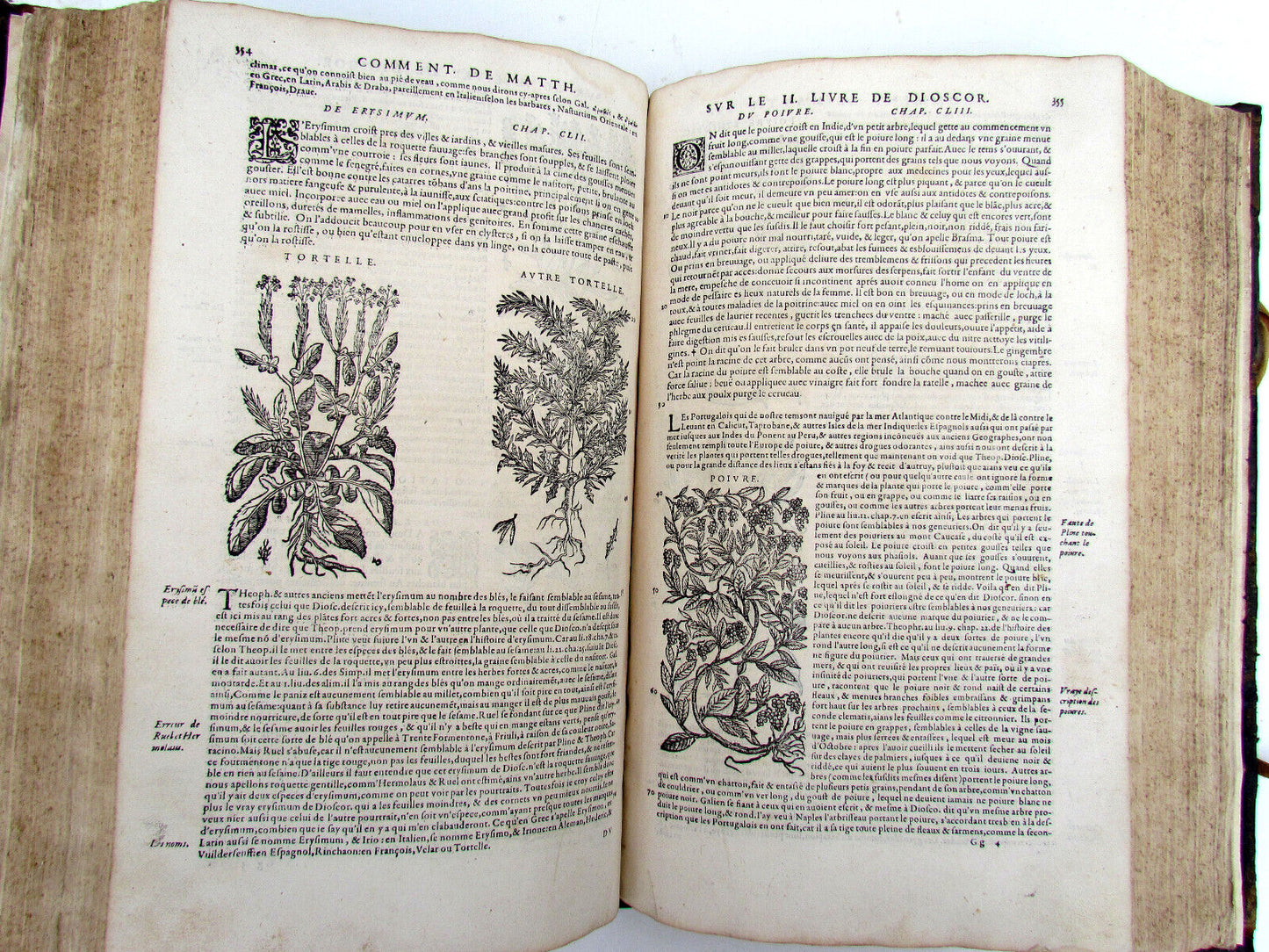Motka
1579 MATTHIOLE COMMENTARIES ILLUSTRATED PLANTS ANIMALS antique 16th cent. FOLIO
1579 MATTHIOLE COMMENTARIES ILLUSTRATED PLANTS ANIMALS antique 16th cent. FOLIO
Regular price
$1,699.60 USD
Regular price
$2,428.00 USD
Sale price
$1,699.60 USD
Unit price
per
Couldn't load pickup availability
Et de nouveau reveuz par iceluy & augmentes.
[Lyon, Guillaume Rouille, 1579] - lower part of the title page with edition information is missing.
With 1 woodcut portrait, woodcut title vignette and numerous text woodcuts of plants, herbs, mammals, fish etc, 6 illustrations of distillery apparatus.
Besides medical plants the book also contains short zoological chapters and a chapter on distillation.
Original calf (restored). Renewed endpapers and ties.
Massive folio: 10 by 15 1/4"
832 pp plus extensive preface and tables of content
Title-page with backed loss of lower part, one of the text illustrations cut out, some minor marginal repairs and occasional spots.
Second edition (1st 1561) of the French translation by Jean Des Moulins from the Latin "Di Pedacio Dioscoride Anazarbeo Libri cinque Della historia" (1544) by the Italian doctor and naturalist P.A.G. Mattioli (1501-1577).
Text in French
====================
Pietro Andrea Gregorio Mattioli (1501 – c.?1577) was a doctor and naturalist born in Siena.
He received his MD at the University of Padua in 1523, and subsequently practiced the profession in Siena, Rome, Trento and Gorizia, becoming personal physician of Ferdinand II, Archduke of Further Austria in Prague and Ambras Castle, and of Maximilian II, Holy Roman Emperor in Vienna.
Mattioli described the first case of cat allergy. His patient was so sensitive to cats that if he was sent into a room with a cat he reacted with agitation, sweating and pallor.
A careful student of botany, he described 100 new plants and coordinated the medical botany of his time in his Discorsi ("Commentaries") on the De Materia Medica of Dioscorides.
The first edition of Mattioli's work, the Italian translation of De Materia Medica, supplemented with his own commentaries, appeared in 1544 in Venice.
In addition to identifying the plants originally described by Dioscorides, Mattioli added descriptions of some plants not in Dioscorides and not of any known medical use, thus marking a transition from the study of plants as a field of medicine to a study of interest in its own right. In addition, the woodcuts in Mattioli's work were of a high standard, allowing recognition of the plant even when the text was obscure.
A noteworthy inclusion is an early variety of tomato, the first documented example of the vegetable being grown and eaten in Europe.
=================================
5.13

Powered by 's eCommerce Solution
Listed with ExportYourStore.com
